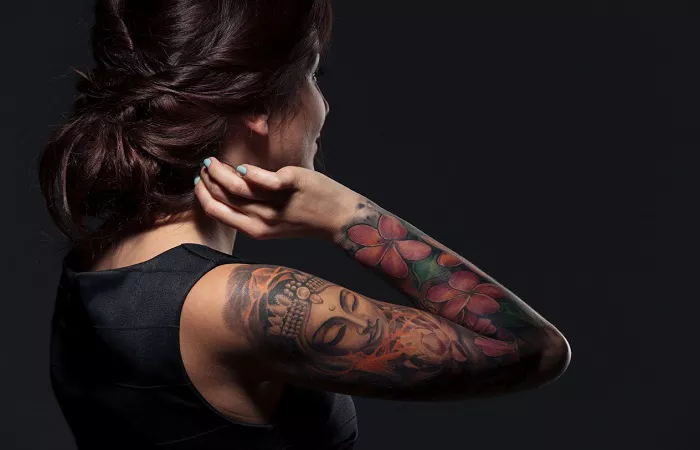Tattooing is an art form that combines creativity, precision, and a deep understanding of human anatomy. Behind every stunning piece of body art lies hours of meticulous work, technical skill, and artistic vision. However, the life of a tattoo artist isn’t all smooth sailing. Beneath the surface of vibrant inks and satisfied clients, there are a plethora of irritants that can test even the most patient and seasoned tattooists.
The Perpetual Battle with Indecision
One of the most common sources of frustration for tattoo artists is dealing with clients who can’t make up their minds. From the moment a client walks into the studio, the artist’s role extends beyond simply wielding a tattoo machine. They become a counselor, a design consultant, and a mediator between the client’s imagination and the practicalities of tattooing.
Clients often arrive with a vague idea, expecting the artist to magically transform it into a masterpiece. While collaboration is a fundamental aspect of the tattooing process, the constant back-and-forth, last-minute changes, and indecision can be incredibly time-consuming and mentally exhausting. Artists invest significant effort into creating custom designs, only to have them discarded at the eleventh hour. This not only wastes the artist’s time but also disrupts the flow of the studio and can lead to delays for other clients.
The Myth of the “Quick Fix”
Another major annoyance is the misconception that tattoos can be easily modified or covered up. Many clients approach tattoo artists with unrealistic expectations, believing that a poorly executed tattoo can be fixed with a few simple adjustments. In reality, tattoo removal and cover-up work are complex processes that require careful planning, skill, and often multiple sessions.
Covering up a tattoo isn’t as straightforward as slapping a new design over the old one. The artist must consider factors such as the color, size, and location of the existing tattoo, as well as the client’s skin tone and texture. Failure to understand these intricacies can lead to disappointment for both the client and the artist, who may be blamed for not delivering the desired results.
The Uninformed Client
A lack of knowledge about the tattooing process is a frequent source of frustration. Some clients show up unprepared, unaware of the basic aftercare requirements or the potential risks involved. This lack of understanding can lead to complications such as infections, allergic reactions, and premature fading of the tattoo.
Tattoo artists often spend a significant amount of time educating clients about proper aftercare, but not everyone takes the instructions seriously. When clients neglect their tattoos, it not only affects the final result but also reflects poorly on the artist’s work. Moreover, uninformed clients may ask inappropriate questions or make requests that are either unethical or physically impossible, putting the artist in an uncomfortable position.
The Social Media Dilemma
In the age of social media, tattoos have become highly shareable content. While this has undoubtedly helped promote the art form and build a community of tattoo enthusiasts, it has also brought its own set of problems. Tattoo artists often find themselves dealing with clients who come in with unrealistic expectations based on images they’ve seen online.
Social media platforms are filled with perfectly filtered and edited photos of tattoos, which can create a distorted perception of what’s achievable in real life. Clients may point to a heavily photoshopped image and demand an exact replica, failing to understand that factors such as skin type, body shape, and the artist’s individual style can significantly impact the final outcome.
Furthermore, the pressure to constantly produce “Instagram-worthy” tattoos can be overwhelming. Artists feel the need to create unique and eye-catching designs to stand out in a crowded online marketplace, which can sometimes compromise their creative vision or lead to burnout.
The Studio Etiquette Offenders
Inside the tattoo studio, there are certain unwritten rules and etiquettes that contribute to a positive and productive environment. However, not all clients respect these boundaries. Some clients bring too many friends along, turning the tattooing session into a noisy and distracting social gathering. This not only makes it difficult for the artist to concentrate but also invades the privacy of the client getting the tattoo.
Others may show up late for their appointments without a valid reason, disrupting the studio’s schedule. Since tattooing requires careful preparation and setup, a late client can throw off the entire day, causing inconvenience to both the artist and other clients.
The Artistic Integrity Struggle
Maintaining artistic integrity is crucial for tattoo artists, but it’s often challenged by clients who try to dictate every aspect of the design. While it’s important to listen to the client’s ideas, there comes a point where the artist’s professional judgment should be respected. Some clients may have unrealistic or inappropriate design requests that go against the artist’s values or aesthetic sensibilities.
Forcing an artist to create something they’re not comfortable with not only compromises the quality of the work but also undermines the creative process. When artists are unable to express their creativity freely, it can lead to a sense of dissatisfaction and frustration, ultimately affecting their passion for the craft.
Conclusion
In conclusion, the life of a tattoo artist is filled with a unique set of challenges and irritations. From indecisive clients and unrealistic expectations to social media pressures and studio etiquette violations, these annoyances can take a toll on the artist’s mental and emotional well-being. By understanding and respecting the artistry, expertise, and boundaries of tattoo artists, clients can help create a more harmonious and enjoyable experience for everyone involved. Whether you’re a seasoned tattoo collector or considering getting your first ink, taking the time to educate yourself and communicate effectively with your artist can go a long way in ensuring a successful and satisfying tattooing journey.
Related topics

